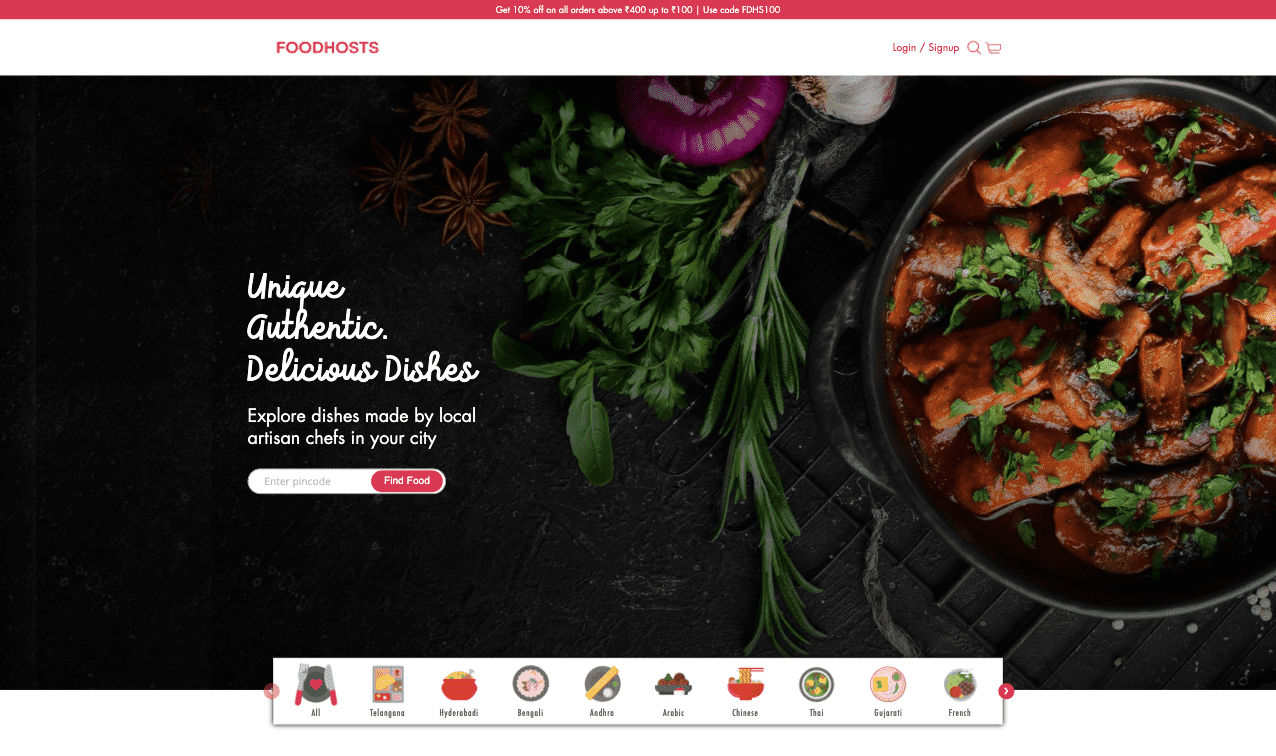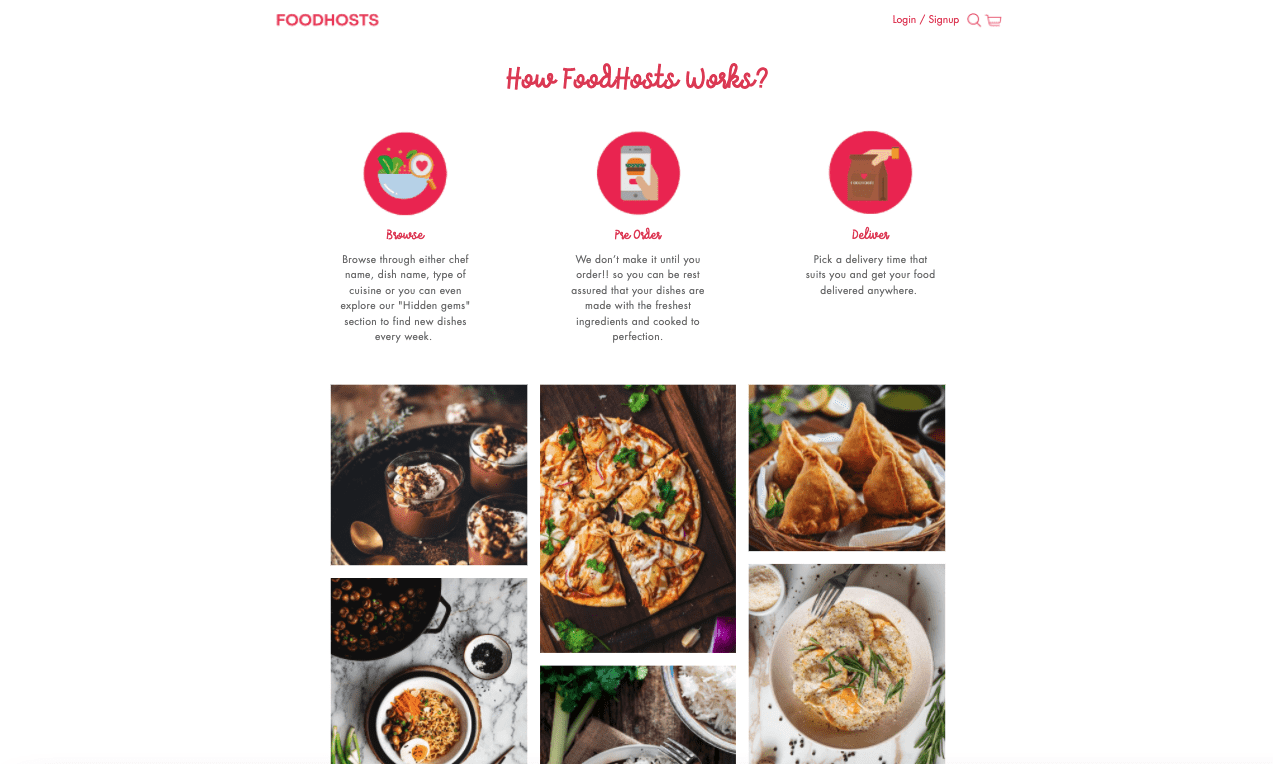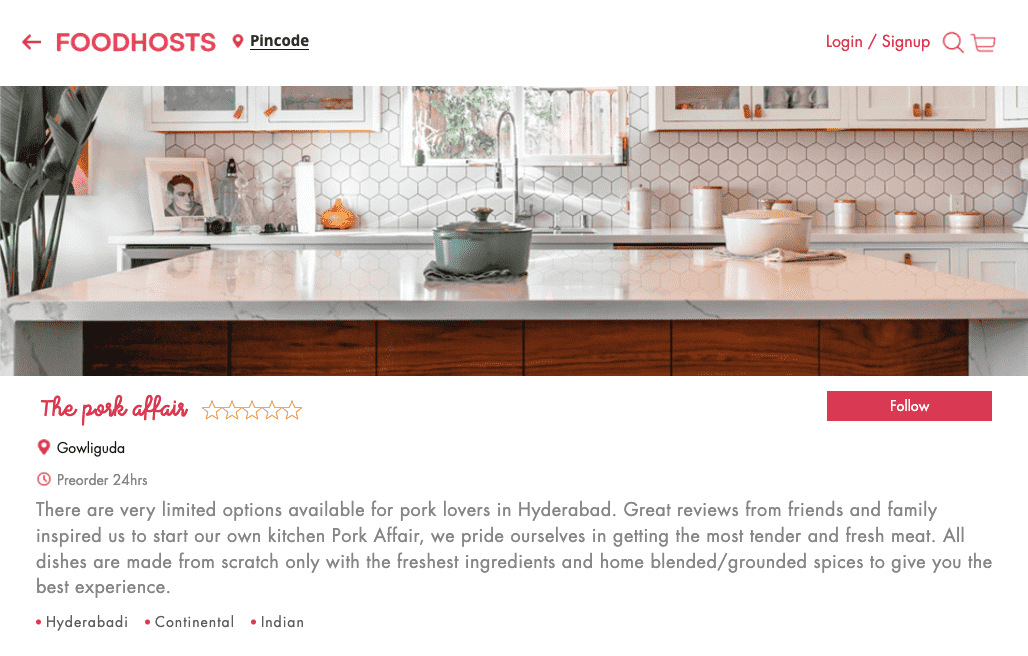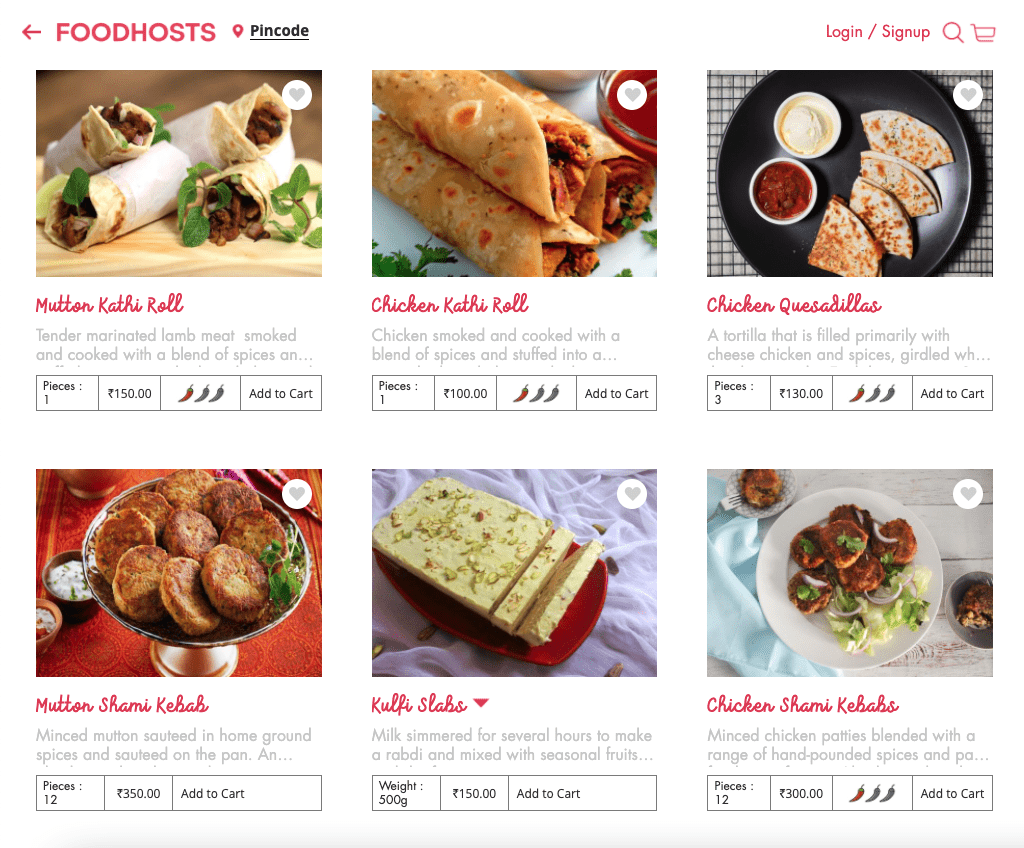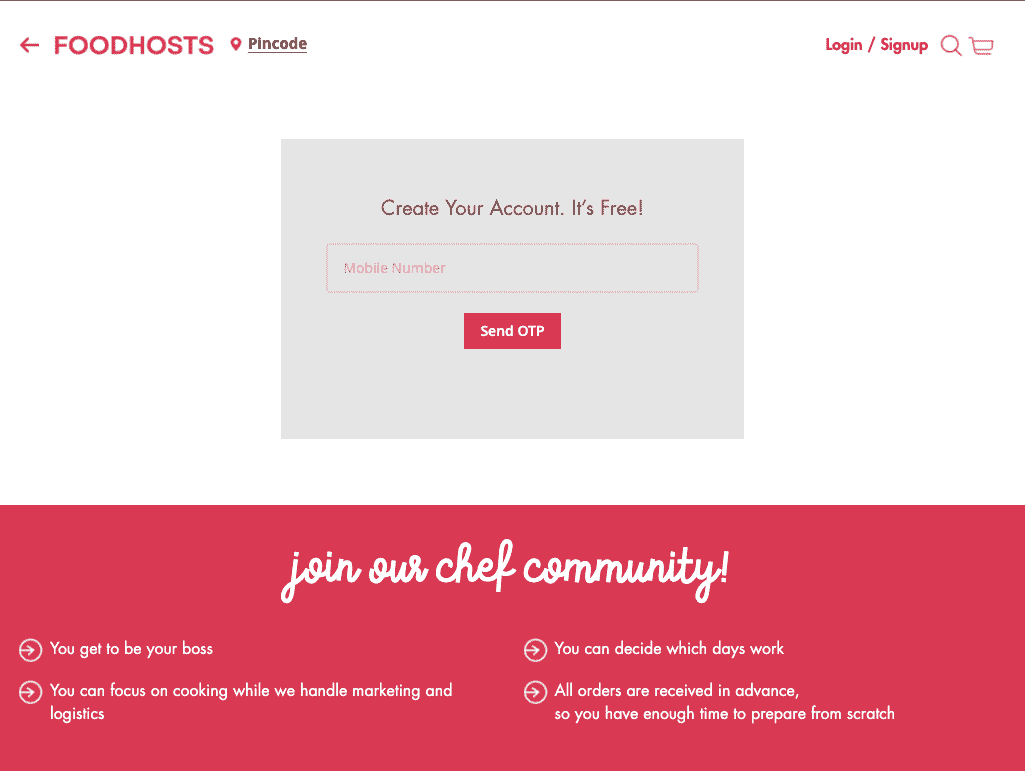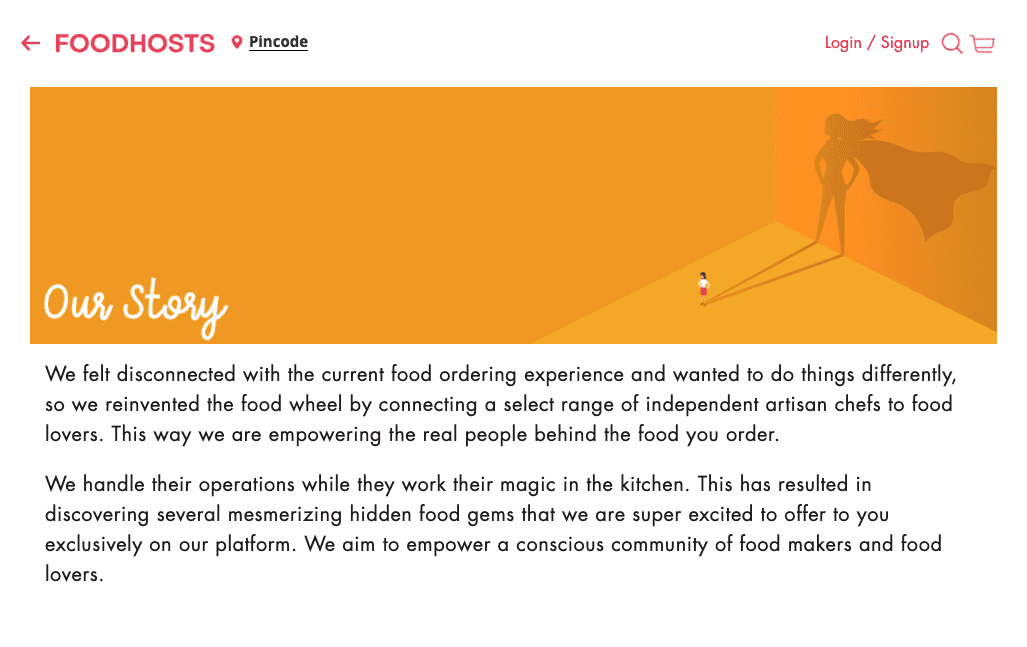

About the project
Product -  foodhosts.in
foodhosts.in
Every city can be a whole culinary world with various family-run grocery stores or local cafes. But how would anyone know about it when delivery menus usually feature fancy restaurants or mainstream fast food chains?
In August 2021, FoodHosts, a food-tech startup, contracted WebileApps to create a fully-functional e-commerce platform for bringing together chefs, cuisines, and food connoisseurs. The main goal of the project was to develop software that would allow independent chefs to present their specialties to the community. We used our Magento-based plug-and-play headless CMS WA Commerce to deliver the project. The result was a 50% reduction in development time and more customization options for customers in the future.
Project Challenges
Architecture Engineering
We needed to develop an all-in-one food delivery service with features like OTP-based login, order history, delivery scheduling and tracking. We also needed to develop different functionality for the chef portal, admin portal, and user portal. All this required a lot of work, some of which was similar. So, to save the client’s budget, we decided to not build the solution from the ground up. Instead, we went with our pre-built WA Commerce stack that can be used for any headless API-based commerce model. It helped us launch an MVP in a couple of months.
Simple and appealing user experience
The client wanted to translate their focus on authenticity into a simple but appealing user experience. So, we came up with a mind map to visualize the client’s ideas. Additionally, we created high-fidelity mockups, chose primary, secondary, and accent colors, and decided on the font. After that, we proceeded with the prototype.
Vendor management system
Only licensed chefs were allowed to list and sell their dishes on the client’s platform. So we developed an admin portal to implement this requirement and avoid any potential vendor-related risks (like delivery delays). It allows admins to manage chef and dish listings, verify, enable, or disable vendors (chefs), as well as approve or decline their dishes for sale. Since all specialties are prepared after users place orders, we needed a system with different lead times for each chef, depending on their operational needs— from two hours to two days. The system allowed chefs to handle orders flexibly while working in the kitchen.
Tracking deliveries
To let clients rest assured their orders would be delivered on time, we had to set up a real-time tracking delivery system that displays all order stages: preparation, pickup, and delivery.
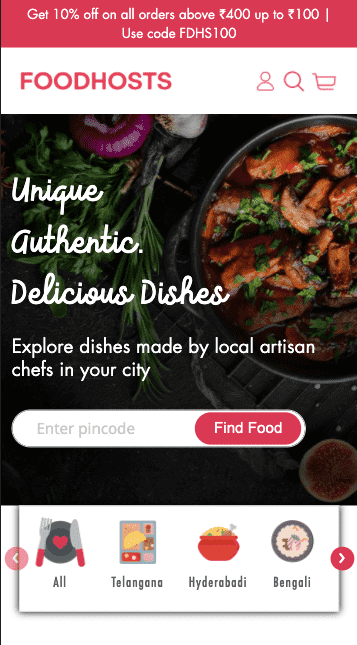
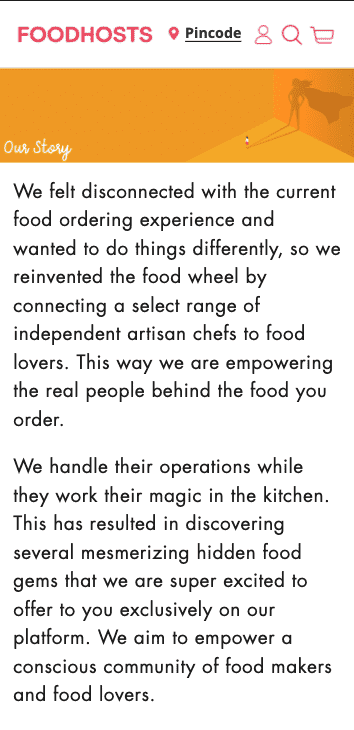
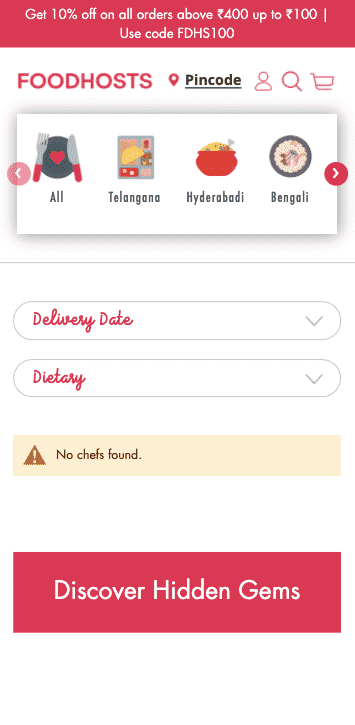
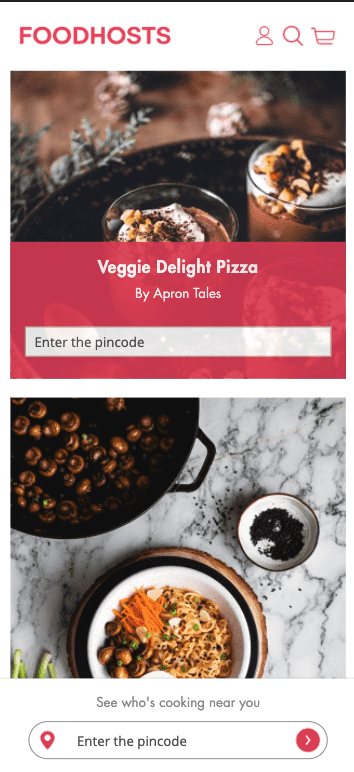
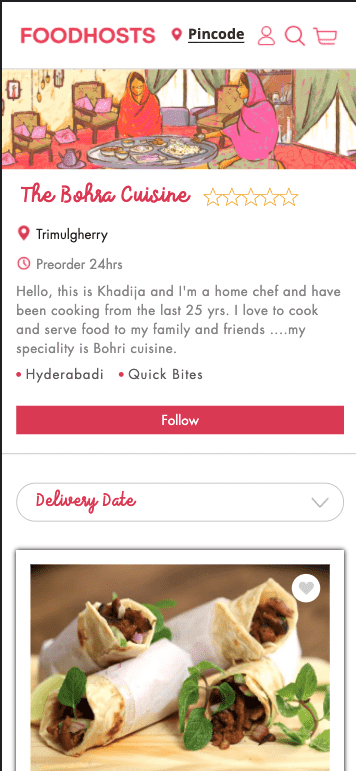
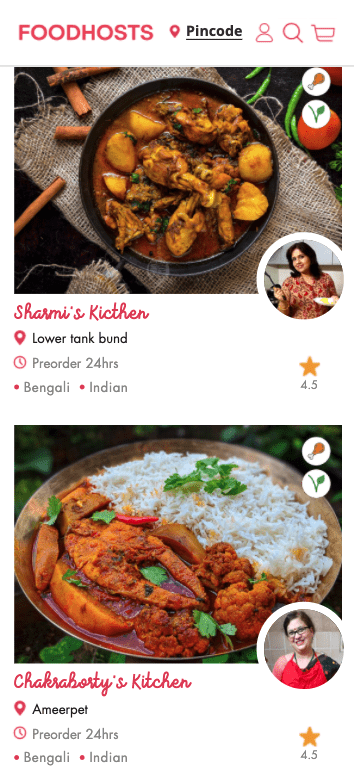






Solution
Full-cycle software development
To bring the idea to life, we divided the project into the following stages:
Discovery - The first step was to understand the client's vision, examine business documents and existing workflows. We gathered all the basic customer requirements and defined the project scope: objectives, constraints, timeframe, and deliverables.
Designing mockups - Based on the data gathered during the discovery phase, our design team delivered a mockup of the final product.
Building a prototype - Our designers and software engineers converted the mockups into functional prototypes.
Creating and launching an MVP - After giving stakeholders a taste of the final version of the product design, we began developing the MVP. Within a few months, we were able to launch an initial MVP based on our WA Commerce stack.
Improving the MVP - Currently, the MVP version is being refined based on feedback from clients and users.
WA Commerce stack
The entire backend of FoodHosts is based on the headless commerce platform-as-a-service (PaaS) from WebileApps built on top of the Magento Open Source edition. WA Commerce stack is a complete package of pre-built tools for web and mobile app development. It allows businesses to choose between different deployment models, including brick-and-mortar stores, franchises, multi-vendor, drop-in commerce, and point-of-sale models. Most competitors only support one or two models at a time. This allows our clients to add new channels and locations without being tied to the technology stack they had picked at the start.
Clear UX/UI design
To create a simple and clear design, we matched the client's vision to market realities and identified the problems customers might encounter when ordering food online. All the design and development stages were agreed upon with the client. And now, FoodHosts can boast an engaging design and intuitive navigation.
Team composition
We split our technical experts, designers, and managers into groups that followed the Agile and Kanban approaches. The whole project team consisted of:
- Solutions architect
- Technical architect
- Senior Software engineer
- Software engineer
- UI/UX designer
- QA engineer
Results
WebileApps developed a food ordering and delivery platform for independent chefs and food lovers.
The development duration has been significantly reduced due to our plug-and-play WA Commerce stack.
The solution has three different interfaces: chef portal, Foodhosts admin portal, and end-user portal.
The system includes such helpful features as flexible order management, cancellations, refunds, order history, ratings, OTP-based authentication, delivery tracking, and more.
Currently, the project is in the support and maintenance phase, waiting for further enhancements.
Future plans
The project is still ongoing, as the clients discuss new features and enhancements with our team.

